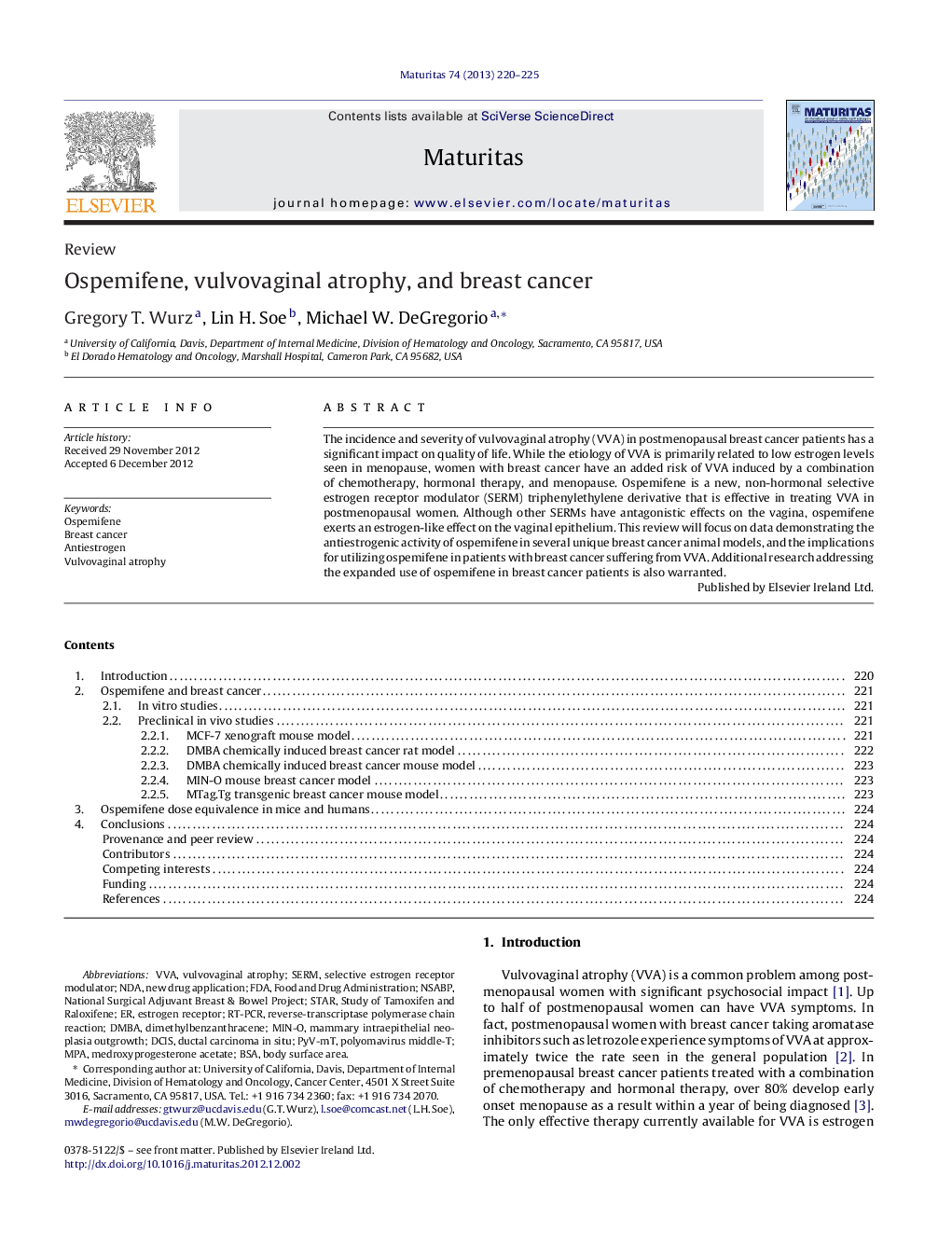| Article ID | Journal | Published Year | Pages | File Type |
|---|---|---|---|---|
| 10743552 | Maturitas | 2013 | 6 Pages |
Abstract
The incidence and severity of vulvovaginal atrophy (VVA) in postmenopausal breast cancer patients has a significant impact on quality of life. While the etiology of VVA is primarily related to low estrogen levels seen in menopause, women with breast cancer have an added risk of VVA induced by a combination of chemotherapy, hormonal therapy, and menopause. Ospemifene is a new, non-hormonal selective estrogen receptor modulator (SERM) triphenylethylene derivative that is effective in treating VVA in postmenopausal women. Although other SERMs have antagonistic effects on the vagina, ospemifene exerts an estrogen-like effect on the vaginal epithelium. This review will focus on data demonstrating the antiestrogenic activity of ospemifene in several unique breast cancer animal models, and the implications for utilizing ospemifene in patients with breast cancer suffering from VVA. Additional research addressing the expanded use of ospemifene in breast cancer patients is also warranted.
Keywords
MPAdimethylbenzanthraceneSERMNSABPFDADMBART-PCRNDADCISVVABSAvulvovaginal atrophyantiestrogenOspemifeneNew drug applicationFood and Drug AdministrationStarBreast cancerbody surface areamedroxyprogesterone acetateSelective estrogen receptor modulatorReverse-transcriptase polymerase chain reactionDuctal carcinoma in situEstrogen receptor
Related Topics
Life Sciences
Biochemistry, Genetics and Molecular Biology
Ageing
Authors
Gregory T. Wurz, Lin H. Soe, Michael W. DeGregorio,
